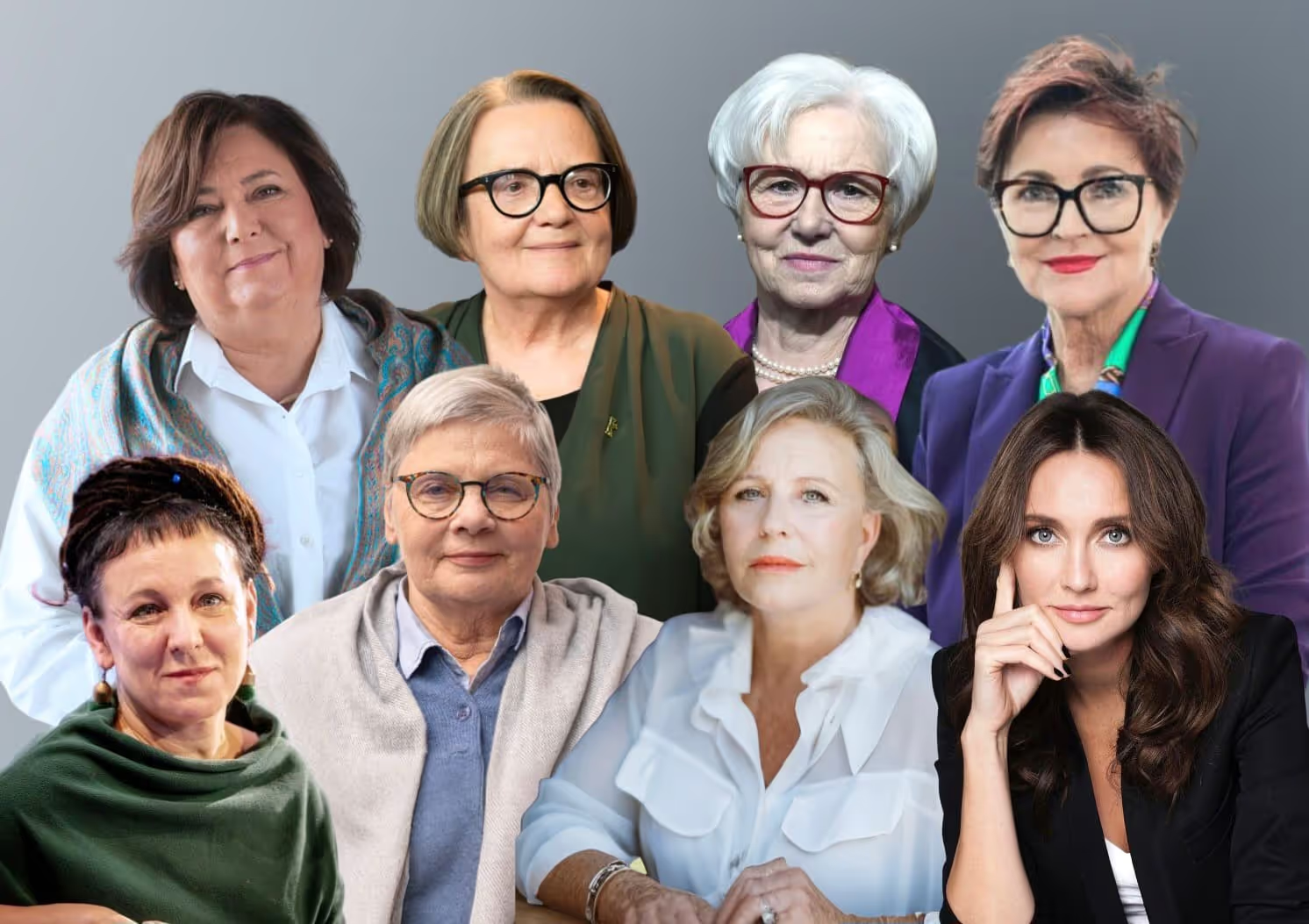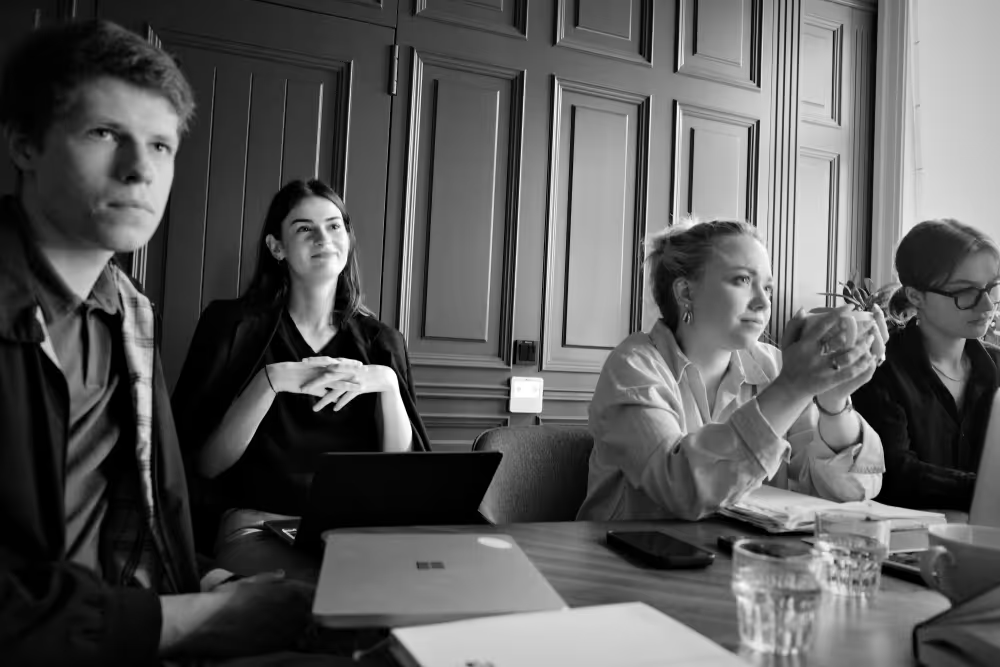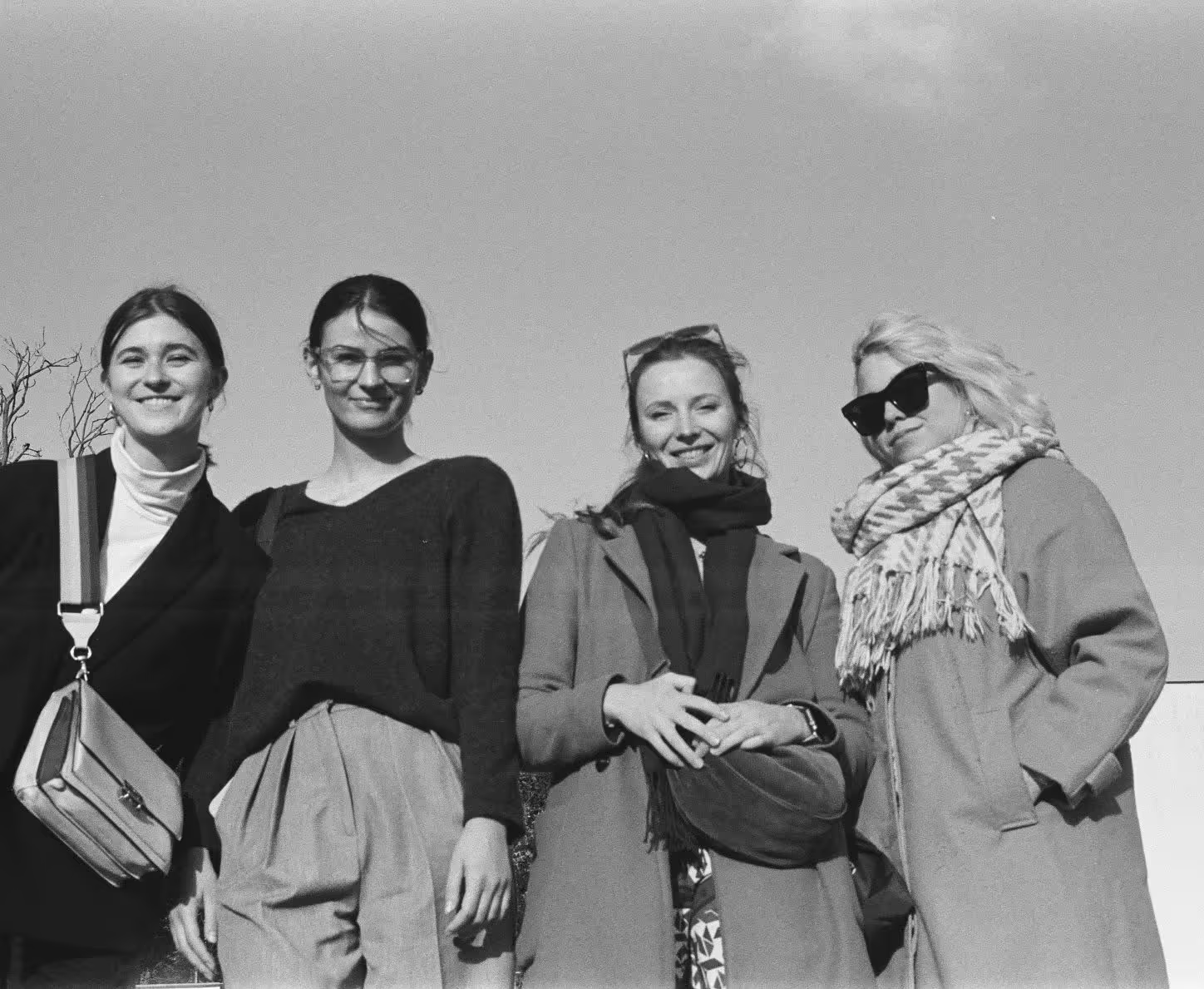Support Sestry
Even a small contribution to real journalism helps strengthen democracy. Join us, and together we will tell the world the inspiring stories of people fighting for freedom!
У соцмережах дедалі частіше з'являються дописи українців, які цікавляться можливістю переїхати до Канади. Часто запитують про це ті, хто через війну спочатку переїхав до США. З приходом до влади Дональда Трампа, який оголосив війну мігрантам, українці побоюються, що їх буде видворено зі Штатів, як це вже відбувається з біженцями з інших країн. Не додав оптимізму і розісланий українцям лист від Міністерства внутрішньої безпеки США з вимогою залишити країну. І хоча у владі заявили, що українці отримали повідомлення помилково, люди напружились. І замислились про переїзд з Америки вже зараз — не чекаючи сюрпризів.
Серед можливих країн для переїзду розглядають Канаду — країну, яка традиційно більш лояльна до іммігрантів і у світлі останніх подій набагато менш лояльна до США. Ба більше — дії Дональда Трампа викликали бажання переїхати не лише в українців, а й в самих американців.
У пресі з'являються повідомлення про міграцію до Канади відомих американських академіків (історики Тімоті Снайдер і Марсі Шор та філософ Джейсон Стенлі пояснили свій переїзд політичним кліматом, який, за словами Джейсон Стенлі, є «американським спуском до фашизму»). Переїзд до Канади серйозно розглядають власники бізнесів, ЛГБТ-пари. Імміграційні юристи відзначають зростаючу кількість запитів, а одна з канадських фірм навіть запустила рекламу: «Втомилися від Трампа? Думаєте про Канаду? Можемо допомогти».
Made in Canada: як Трамп впливає на економіку й ідентичність Канади
Попри поширену думку, що Канада є лояльною для іммігрантів країною, виявилося, що переїхати сюди не так просто навіть для громадян США. Щоб отримати право легально проживати в Канаді, їм потрібно або отримати робочу візу, або вільно володіти французькою. Аналогічні правила для українців: якщо у 2022 році майже всі бажаючі могли приїхати за українською програмою CUAET , то тепер, коли програму закрито, залишаються лише стандартні імміграційні шляхи.
За CUAET, що дає трирічне право на проживання та роботу в Канаді, до країни приїхало майже 300 тисяч українців. Серед них — українка Ірина Колотило, яка до повномасштабного російського вторгнення працювала в громадському секторі, допомогаючи молоді, зокрема зі східних регіонів, а потім займалася майже тим самим у Канаді, працюючи як settlement worker (соцпрацівник, який відповідає за розміщення й облаштування українців).

— Те, що деякі американці розглядають питання переїзду до Канади — правда, — розповідає Ірина. — Мій друг з Техасу ще минулоріч цікавився, як переїхати до Торонто, де зараз мешкаю я. З приходом до влади Трампа такі настрої тільки посилились.
Відповідно, пішли вгору ціни на нерухомість, — адже тепер її скуповують американці.
Раніше бізнес з Канади традиційно перевозили до Штатів, бо в Канаді вищі податки. Тепер з'являються охочі перевезти бізнес з Америки до Канади
При цьому ще за Джастіна Трюдо уряд, орієнтуючись на суспільні настрої, почав посилювати імміграційну політику.
Закрили можливості для студентів, які приїжджали, сподіваючись залишитися в країні після навчання. Зрештою деякі виші навіть змушені закривати факультети. Збільшилася кількість відмов навіть за туристичними та робочими візами. Раніше, якщо людина мала робочу візу, її партнер отримував її автоматично. Тепер скасовують навіть це. І з огляду на те, що, наприклад, у Торонто на виборах перемогли консерватори, не схоже, що імміграційна політика найближчим часом зміниться.
За словами Ірини, наслідки торговельної війни між США та Канадою вже відчуваються:
— Ціни зростають, особливо на товари зі Штатів. Тут всі звикли робити онлайн-покупки у США. Тепер це невигідно — нещодавно колега вирішила замовити сукню, і лише доставка разом з податком потягнула на сто із хвостиком доларів.
Деякі тенденції мені нагадують українські у 2014 році — коли люди почали масово відмовлятися від російських товарів. У Канаді зараз теж багато хто принципово відмовляється від усього американського
На товарах місцевого виробництва з'явилися великі етикетки «Made in Canada», «Proudly Canadian». Якщо раніше людей не хвилювало питання національної ідентичності, то після заяв Трампа про те, що він бачить Канаду 51-першим американським штатом, люди стали підкреслювати, що вони — канадці. Люди, зокрема, відмовляються від американського алкоголю, а кав'ярні масово змінюють у меню каву «американо» на «канадіано», наголошуючи, що останнє — міцніше.

Ведуться розмови про те, що країна має бути надійно захищена. У пресі пишуть, що Канада укріплює кордони, що відбуваються навчальні польоти. І дійсно, в небі іноді можна побачити військові літаки.
У зв'язку із ситуацією у Штатах до Канади приїжджає чимало мексиканців. Вони заїжджають як туристи (для них безвіз), після чого шукають можливості легалізуватися.
Щодо українців, то вони або вже знайшли, або теж шукають шляхи залишитися. Гостро стоїть питання про те, чи продовжать дозвіл на роботу тим, хто не отримав постійне резидентство. Я, приміром, серед таких людей.
Україна тут вже не є пріоритетною країною для надання допомоги. Після України Канада стала допомагати країнам Латинської Америки, — ситуація постійно змінюється. Фінансування програм допомоги українцям припинилося ще рік тому. Втім, якихось масштабних інтеграційних програм для українців, як у деяких країнах Європи, тут ніколи і не було.
Вижити на 3000 доларів
Єдина допомога — це три тисячі канадських доларів, які видавалися кожному українцю після приїзду. За словами Ірини, цієї суми вистачає тільки на те, щоб сплатити за житло:
— Мої три тисячі відразу на квартиру і пішли. Я приїхала з подругою та двома сестрами. Ми знайшли двокімнатну квартиру, де й досі живемо.
Тут або в тебе є із собою фінансова подушка, або потрібно з першого дня шукати роботу. У крайньому разі можна звернутися до фонду надзвичайних ситуацій, де людям з маленьким доходом можуть допомогти, якщо в їхньому житті сталося щось непередбачене. Тоді кілька разів можна отримати 700 канадських доларів. Ось тільки на 700 доларів у Канаді все одно не вижити.
У Торонто оренда кімнати коштує 1000-1500 доларів. А ще треба щось їсти, одягатися, користуватися транспортом й інтернетом. Тут є різні пункти допомоги — як, наприклад, банк їжі (food bank) або банк меблів, де можна отримати безкоштовну їжу й меблі задарма. Щоправда, доставка цих меблів потягне на 500 доларів.
Медична страховка покриває лише випадки, які становлять реальну загрозу життю. За зубну пломбу доведеться платити 200-300 доларів. Тобто щоб просто вижити, одній людині в Торонто потрібно заробляти щонайменше 3000 тисячі доларів — і це з урахуванням, що ця людина орендує не квартиру, а кімнату.
Якщо хочеш однокімнатну квартиру, то потрібно заробляти бодай 5-7 тисяч доларів на місяць. Якщо ти автомобіліст, ще більше, адже лише страховка авто — це близько 500 доларів на місяць
У Торонто без машини прожити реально, але за містом вже ніяк — там просто може не бути громадського транспорту. Особисто я купую місячний проїзний на громадський транспорт за 156 доларів, і інколи їжджу на велосипеді.
До речі, чимало українців тут вже купили машини… і тепер працюють таксистами
Авто тут найчастіше беруть у кредит. Ким ще тут здебільшого працюють українці? Часто це такі сфери як клінінг, догляд за літніми людьми, робота на заводах, у барах чи магазинах одягу. А ще багато хто знімається в масовках.

У Канаді розвинена кіноіндустрія. Торонто нагадує Нью-Йорк, але зйомки тут дешевші — тож у місті постійно щось знімають. Реєструєшся на сайті, тебе запрошують у масовку. Працюєш зазвичай 12 годин, платять мінімалку — 17 доларів за годину. Іноді можна побачити знаменитостей.
Ті, хто приїжджає зі знанням англійської, шукають роботу за спеціальністю, але без канадського досвіду та особистих рекомендацій і такий варіант повен перешкод. Я б сказала, що більше вирішує навіть нетворкінг, аніж канадський досвід.
Коли ти іммігрант, то можеш написати в резюме що завгодно — навряд чи хтось зможе це перевірити
Розуміючи це, роботодавці вважають за краще брати людей за рекомендаціями від своїх.
Ірина знайшла роботу через місяць після приїзду до Канади. Каже, у її випадку збіглося кілька чинників: знання англійської, досвід роботи з внутрішніми переселенцями з Донбасу і те, що у місцевій бібліотеці (яка є своєрідним культурним хабом) саме шукали людину, яка знає українську. Так Ірина стала допомагати новоприбулим українцям. А зараз вона працює програмним менеджером у благодійному фонді Help Us Help, який допомагає українським дітям.
«У Канаді ти не маєш права захворіти чи втомитися — ти весь час працюєш»
— У Канаді дійсно потрібно працювати, якщо хочеш вижити, — підтверджує українка Олександра Кіщенко з Кривого Рогу, яка з 2022 року проживає в Калгарі. — Попри те, що я приїхала до Канади вагітною, я відразу влаштувалася мити посуд у ресторані, а потім знайшла ще одну роботу в клінінгу.
Їхала сама, зі ста доларами у кишені… Розуміла, що мені спочатку потрібна буде родина хостів, де я змогла б жити, поки не стану на ноги. А вже через два місяці я змогла з'їхати й винайняти квартиру.
Моєю метою було встигнути до пологів відпрацювати 600 годин — мінімум, який дає право на одну суттєву пільгу — соціальні виплати в разі втрати роботи. Я розуміла, що в перші місяці після пологів ці виплати (вони зазвичай становлять 55 відсотків від зарплати) будуть мені потрібні. Було дуже складно їх відпрацювати, — особливо коли доводилося тягати ящики з посудом та пилососи. Пам'ятаю, якось впала на сходах так, що аж відняло ногу. Після цього змогла дозволити собі один вихідний…
Я не чула тут про таке поняття, як декрет — жінки працюють, поки можуть. Особисто я за чотири дні до пологів ще була на роботі
55 відсотків від зарплати — виплата начебто непогана, але не тоді, коли твоя зарплата мінімальна. Тому вже в три з половиною місяці мій син пішов у садок, а я — працювати.
Садочки в Канаді платні (навіть із субсидією це 600-700 доларів на місяць), але коли ти одна і треба заробляти — це єдиний вихід. Після пологів моєю роботою стала обробка газонів, і це було в тисячу разів важче за клінінг і миття посуду. З ранку до вечора я стояла буквою «Г», почалися проблеми зі спиною. Паралельно намагалася знаходити час на вивчення англійської…

У рідному Кривому Розі Олександра була моделлю, першою віцеміс України Plus Size 2021, діджеєм та викладачкою хореографії. Після повномасштабного вторгнення вона відмовилась від титулу через те, що організатори конкурсу вирішили «тримати нейтралітет». На момент переїзду до Канади дівчина розлучилася зі своїм партнером і зараз виховує сина сама.
— У Канаді ти не маєш права захворіти чи просто втомитися, — каже Олександра. — Ти працюєш. Попри важку роботу і маленьку дитину, я все ж таки змогла підтягнути англійську, і це дало можливість вступити на безкоштовний курс педагога дошкільної освіти. Це можливість знайти кращу роботу в майбутньому, і я йду до цієї мети.
Життя в Канаді зовсім не таке, як в Україні чи країнах ЄС. Клімат у Калгарі став для мене шоком — взимку в мінус 37 леденіють вії, до того ж фізично неможливо дихати. Разом з тим канадці практично за будь-якої погоди їздять на велосипедах. Вони багато рухаються — і, певно, завдяки цьому залишаються здоровою нацією. Хоча їдять багато цукру.
Продукти тут за замовчуванням містять цукор, і тому наші дівчатка скаржаться на набір ваги, хоча їдять начебто те саме, що й в Україні. У садках дітям спокійно дають кекси та інші солодощі. Загалом, у садочку дітям надано повну свободу дій: вони можуть валятися на підлозі, стрибати в калюжах — будь-що, якщо це не становить загрози життю. Все дуже просто — і такий підхід у канадців у всьому.
Жінки тут не витрачають гроші на манікюр з покриттям або зачіску. За зовнішнім виглядом людини в Канаді ніколи не вгадаєш її дохід: багаті носять футболки з масмаркету за 10 доларів
Один мій дуже забезпечений знайомий їздить на купленій багато років тому машині й навіть не планує її міняти, оскільки вона на ходу. Більшість людей тут не має великого інтересу до брендів і трендів — гроші, скоріше, люди витратять на подорож, дорогий комфортний готель.
Ще люди вражаюче ввічливі. Тут поширений small talk –- коли, вітаючись з людиною, ти обов'язково маєш обмінятися кількома фразами — про погоду чи ще щось.
Останнім часом small talk зводиться до обговорення, що знову зробив чи заявив Трамп
Майбутнє для багатьох українців у Канаді, за словами наших співрозмовниць, залишається туманним. Хоча в цій країні існує немало імміграційних маршрутів, не всі можуть знайти варіант. У випадку з Олександрою навіть той факт, що вона є мамою канадця (у Канаді громадянство дається за правом народження), не дає їй права отримати громадянство або постійне резиденство. У випадку з Іриною теж все непросто.

— Деякі українці подаються на гуманітарну програму, але це для тих, у кого не залишилося жодних зв'язків з Україною та хто не планує туди їздити, — пояснює Ірина. — Окремо діє програма возз'єднання сім'ї — це підходить тим, хто має тут близьких родичів. У моєму випадку залишається варіант express entry — коли для того, щоб отримати резиденство, потрібно бути спеціалістом у певній сфері й набрати певну кількість балів. Бали — це і твоя освіта, і робота, і іспит з англійської, і навіть вік (ті, кому до 30-ти, набирають найбільше балів). Раз на місяць уряд публікує список спеціальностей, затребуваних на ринку праці — і якщо ти спеціаліст у цій сфері й у тебе достатньо балів, є ймовірність, що ти отримаєш постійне резидентство. Моя професія, на жаль, до списку затребуваних зазвичай не потрапляє.
Дуже високі шанси отримати резидентство — у тих, хто знає французьку
У Канаді зараз активно підтримують і розвивають французьку мову, і підтверджені іспитом знання мови на рівні С1-С2 зараз є практично гарантією отримання можливості залишитись в країні.
A Ukrainian journalist with 15 years of experience. She worked as a special correspondent for the national Ukrainian newspaper «Facts», covering emergencies, high-profile court cases and writing about prominent people, as well as the lives and education of Ukrainians abroad. She has also collaborated with a number of international media outlets.












.avif)


.avif)
.avif)

